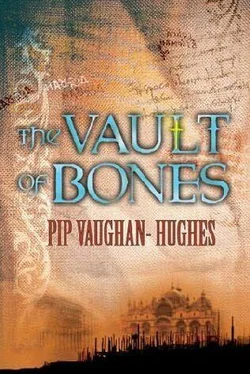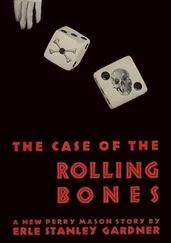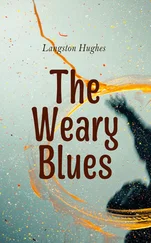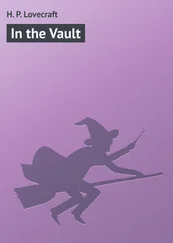Pip Vaughan-Hughes - The Vault of bones
Здесь есть возможность читать онлайн «Pip Vaughan-Hughes - The Vault of bones» весь текст электронной книги совершенно бесплатно (целиком полную версию без сокращений). В некоторых случаях можно слушать аудио, скачать через торрент в формате fb2 и присутствует краткое содержание. Жанр: Исторический детектив, на английском языке. Описание произведения, (предисловие) а так же отзывы посетителей доступны на портале библиотеки ЛибКат.
- Название:The Vault of bones
- Автор:
- Жанр:
- Год:неизвестен
- ISBN:нет данных
- Рейтинг книги:4 / 5. Голосов: 1
-
Избранное:Добавить в избранное
- Отзывы:
-
Ваша оценка:
- 80
- 1
- 2
- 3
- 4
- 5
The Vault of bones: краткое содержание, описание и аннотация
Предлагаем к чтению аннотацию, описание, краткое содержание или предисловие (зависит от того, что написал сам автор книги «The Vault of bones»). Если вы не нашли необходимую информацию о книге — напишите в комментариях, мы постараемся отыскать её.
The Vault of bones — читать онлайн бесплатно полную книгу (весь текст) целиком
Ниже представлен текст книги, разбитый по страницам. Система сохранения места последней прочитанной страницы, позволяет с удобством читать онлайн бесплатно книгу «The Vault of bones», без необходимости каждый раз заново искать на чём Вы остановились. Поставьте закладку, и сможете в любой момент перейти на страницу, на которой закончили чтение.
Интервал:
Закладка:
I loved her for all this: for all that lay on the outside, the flesh that clothed her, the scent that was hers alone, the way her hair shimmered like the nape of a jackdaw's neck. But most of all I loved her for what lay within, for like a great city Anna held within her a powerful complexity – a tumult, as I said – that had its cause, in part, in the way her life story had skipped like a stone just above the dark waters of disaster. But the other part was Anna’s own self, for – to me, at least – she was a creation without peer. The blood of emperors, of old Romans, flowed hot and furious in her veins, and I believe she felt her ancestors' presence very keenly. Certainly they would appear to me in flashes of anger or joy, the face of some long-dead queen or warrior usurping her own features to glare out at a strange world before vanishing back into the past.
The days passed pleasantly enough. The weather improved, indeed it became quite warm, and the stench from the filthy kennels that ran down the middle of every street made itself known to us. What time I had that was not spent in affairs of business I spent with Anna, and we explored high and low, from the vast, ugly hulk of Saint Paul's Cathedral to the Tower perched upon its mound. We squinted at the heads displayed on London Bridge, marvelled at the goods on display at the markets, and lost ourselves in the roistering crowds at Smithfield. Anna grudgingly admitted that London was worthy of at least a little admiration. She was always grudging with praise for anything Frankish, as she called everything outside her homeland of Greece. Franks were barbarians, boors, bloody-handed primitives. She made an exception for me, thank God, and for most of the Cormaran’s crew, but on the whole she resented the fate that had decreed she must pass her time in Frankish lands, and dreamed – every night, so she said – of the day that she would return to her home in Nicea and even, perhaps, see the greatest city of them all, lodestone of her heart: Constantine's city, Byzantium.
We had passed a week in this manner when the captain asked that I make a journey down the Thames to Deptford to buy a new anchor for the Cormaran. I would be gone a day, no more, and I bade Anna farewell with a kiss and a fierce embrace, knowing full well I would be back in those arms by nightfall. I took a wherry downriver, enjoying the boatman's skill as he manoeuvred us through the water traffic and shot the foaming race under London Bridge. It was a sunny day, and I stepped on to the bank at Deptford at around the noon hour. I took a mug of ale and a hot pie at a tavern, sought out the ironworks and paid for a fine anchor. The ironmaster was a voluble Kentishman, and before any money had changed hands a big flagon of cider appeared and we passed it between us in the blazing heat of the forge. Kentish cider is no match for that of Devon, and I told him so in good humour. That set him talking all the more, and before long we were in his cider store, eating great lumps of hard cows' cheese from the downlands of Sussex and sampling the contents of various barrels and tuns. My head well and truly fuddled, I at last conceded that a thick, mouth-puckering scrumpy from the Weald would not be laughed out of the fine county of Devonshire, hugged the man like a brother, and staggered off to find a wherry bound for London.
But there was no wherry. I had spent far too much time at the ironworks. Now it was dark, it was snowing again, and the tide had turned. Cursing, I made my way to the inn, an ancient pile of wattle and daub that the breath of the river had all but dissolved, and enquired after a boat, but there were none to be had until the morrow. And so I reluctantly took a room – there were plenty free – and hoped that Anna would not take my absence amiss. The place was pleasant enough, in truth: there was a hearty fire that hissed and crackled with the jolly song of burning flotsam, good ale and hot wine to chase off the cider hangover I was already suffering. I took myself off early to bed, where I had to curl up tight against the creeping damp of the linen, feeling a little sorry for myself, but not overmuch: for I was playing truant, as it were, and that is a pleasure all to itself.
The pot-boy woke me some time before the fourth hour, while the mist was still thick on the face of the Thames. There were stars in the sky, and marsh birds shrieked and piped out in the foggy desolation. There was a wherryman up and about, said the boy, and when I had jogged through the mist to the edge of the river, I found an ill-tempered man, a boat and a favourable tide. As the bells of the city were chiming the eighth hour, I was whistling up Garlick Hill on my way to the Blue Falcon.
I crossed the threshold of the inn expecting a ghastly tongue-lashing from Anna, but when I found her in the parlour, perched upon a settle by the window, she greeted me with a soft, distracted smile. I sat down warily opposite her and poured out the apology I had been constructing since my wherry had passed the Isle of Dogs.
‘I am glad you had a nice time’ she said, stopping me with a hand to my lips. 'But now I have a puzzle for you. Can you make head or tail of this? It came just after you left’ And she handed me a letter, a neatly folded square of vellum sealed with an anonymous, blank blob of wax. The seal was broken, and I unfolded the vellum and scanned the neatly written words within. To Her Majesty the Vassileia Anna Doukaina Komnena, respectful greetings.
I humbly ask that you will receive a petitioner who will make none but the briefest imposition upon your day. If you would care to hear words from a place that perhaps is still dear to your heart, please receive this humblest of supplicants, who shall call upon you at the hour before noon, tomorrow. The letter trailed off into florid politenesses that tried but failed to disguise the fact that the writer had not signed his name. Who brought this?' I asked. Anna shook her head.
'A tall man’ she said. 'So the pot-boy says. When pressed, he claimed the fellow was not a poor man, to judge by his clothes. That is all’
I read the letter again. It was in French, which gave no clue, although I thought perhaps it might be the French of Paris, and not London French.
'Not a Greek, then?' I puzzled. ‘I mean, this would seem to be from a Greek, would it not? "A place dear to your heart?" Nicea, I suppose’
'That is what… oh, Mother of God, Patch, I can't go on being this calm! Who knows my name, outside our good shipmates? No one! And all this about my heart! Of course it is someone from… someone sent by my uncle’ she finished, her voice sinking into an involuntary whisper.
‘I doubt that’ I said, soothingly. 'Are there Greeks in London?' 'There are’ said Anna. 'Of course there are.' Well, then’
'He was not a Greek’ said Anna. 'I asked. I said, "Did he look foreign?" Apparently he did not. This is Frankish writing, and a Frankish choice of words’ She plucked the letter from me and dropped it on to the settle between us.
'Did you tell the Captain?' I asked, searching her face. Her brows were furrowed and her mouth was drawn into a tight line. She shook her head. 'No. I do not wish to.'
'I think you should.' She shook her head again and gave me a look in which nasty weather was brewing.
'I do not wish to trouble him. He suffers my presence in his company very prettily, and in return I shall not pester him with annoying flea-bites such as this.' She pinned the letter down with her downturned thumb and gave me a look that said the matter was closed. I knew her well enough by now, though, to judge that it was not. But I let it lie, for my love was no mean judge of the world, and prowled around its snares and ambuscades as deftly as any cat.
Well, what shall we do today, then?' I asked, happy to change the subject.
Читать дальшеИнтервал:
Закладка:
Похожие книги на «The Vault of bones»
Представляем Вашему вниманию похожие книги на «The Vault of bones» списком для выбора. Мы отобрали схожую по названию и смыслу литературу в надежде предоставить читателям больше вариантов отыскать новые, интересные, ещё непрочитанные произведения.
Обсуждение, отзывы о книге «The Vault of bones» и просто собственные мнения читателей. Оставьте ваши комментарии, напишите, что Вы думаете о произведении, его смысле или главных героях. Укажите что конкретно понравилось, а что нет, и почему Вы так считаете.









